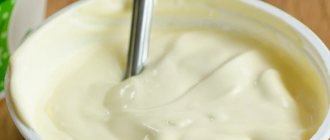Organic Farming Club
When vegetable oil that has been left for longer than expected changes its color or acquires a slightly different, often bitter taste, we begin to doubt whether it is suitable for consumption.SORE THROAT
Is it really necessary to throw away bitter vegetable oil? Ruta Balčiūnaitė, head of the Alejus chain of stores at the Rudugis enterprise, explains that some vegetable oils initially have a bitterness, while others acquire it as a result of oxidation. For example, flaxseed oil changes its taste when oxidized and becomes bitter. But with olive it’s the other way around. Many people think that olive oil is bitter because it is spoiled or rancid. In fact, the feeling of bitterness and soreness is an indicator that extra-pure extra virgin olive oil contains a lot of antioxidants and anti-inflammatory substances. The bitter taste comes from flavonoids (polyphenols) contained in the oil, which protect it from oxidation. Flavonoids are powerful antioxidants. They have a positive effect on the activity of the cardiovascular system, protect the cell membrane from the harmful effects of free radicals, stop the aging process, and relieve inflammation. So the more bitter, rich and “strong” the olive oil is, the more flavonoids it contains. The amount of these substances in olive oil depends on the variety of olives, the conditions of their cultivation, the degree of ripeness (the greener the olives, the more antioxidants they contain), the method of obtaining the oil (the colder the pressing, the more antioxidants in the oil), storage and storage conditions. Olive oil producers claim that the palate should be gradually accustomed to oil with a good, rich taste, like a good red wine rich in tannins. When tasting high-quality olive oil, you should definitely feel the bitterness. By the way, it completely disappears when you add oil to salads. Often the slightly changed color of vegetable oil also causes concern. Sometimes oils of the same type can differ in color. Vegetable oil can be refined or unrefined. According to R. Balciunaite, oil refining is its purification. The main refining processes are neutralization, clarification and deodorization. As a result of these processes, the oil becomes a beautiful golden color, without a specific taste or odor, and is stable to oxidation due to an extended shelf life. Unrefined oil does not have such properties. It can be cold or hot pressed, filtered or unfiltered. But it is not chemically processed in any way. This oil retains its best qualities and often has a specific taste and smell. Unrefined vegetable oil is a real, pure product, the way our food should be. Unrefined vegetable oil comes in different colors. It depends on the type of raw material and the pressing method. Therefore, a dark color is not an indicator of quality, and sediment at the bottom of the bottle is not a sign of spoilage. Such sediment is a natural phenomenon. There is no need to be afraid of it: like unrefined oil itself, it is good for health.
NOT USEABLE
A sign indicating that the oil is unfit for consumption is a change in its color, taste and consistency. It is unlikely that consuming a product the day after the expiration date stated on the label will be harmful. An open bottle of vegetable oil does not have to be used as soon as possible. The main thing is to store the oil in a cool, dark place, such as the refrigerator. Is it possible to get poisoned by vegetable oil? Experts assure that it is rare, but it happens. For example, oil used several times for frying can cause poisoning.
Oil Smoke point Extra virgin olive oil 190-207°C Neraf. Avocado oil 200°C Neraf. macadamia nut oil 210°C Neraf. sesame 232°C Neraf. sunflower 107°C Neraf. flaxseed 107°C Neraf. mustard 254°C Neraf. rapeseed 246°C Rough. sunflower 227°C Raf. milk thistle oil 260°C Raf. Rice bran oil 254°C Raf. corn 232°C Rough. cotton 216°C Rough. grape seed oil 216°C Butter (for comparison) 121-149°C
VARIETY OF VEGETABLE OILS
Today on the shelves you can see a huge variety of oils of different varieties. The most “Lithuanian” of them is linen; it has long been made in our area. Most often people buy from us flaxseed, sunflower or olive oil. In a specialized store, your eyes are wide open from the assortment: sunflower, rapeseed, corn, olive, hemp, pumpkin, wheat germ, grape seed, rice, peanut, macadamia nuts, pine, apricot kernels, etc. In the store you can even buy vegetable butter with butter flavor. Did they really start making vegetable oil from butter? R. Balciunaite suggests familiarizing yourself with the composition of such oil: vegetable oil, soy lecithin E322, butter flavoring, beta-carotene. So the “butter flavor” comes from the flavoring. There is, however, vegetable oil with a butter flavor, which contains natural butter concentrate. But do we really need it? The main producers of olive oil are Mediterranean countries: Portugal, Spain, Italy, Greece, Syria, Turkey, Tunisia, Lebanon, Morocco... However, olive oil produced in the EU is more often offered on the European market. And one of the most valuable and expensive types of oil - argan - is made only in Morocco. This oil is often called Moroccan white gold. The main producers of sunflower oil are Russia and Ukraine. Flaxseed oil, which is sold in Lithuania, is most often produced in Lithuania, although German production is also found. Not only flaxseed oil is produced in Lithuania: there is milk thistle seed oil, pumpkin oil, peanut oil, hemp oil, caraway oil, and black sesame oil.
FOR SALADS AND FRYING
As you know, vegetable oil can be used for dressing salads and for frying. How to figure out which one is for what? Connoisseurs point out that any oil is suitable for salads, but unrefined, cold-pressed oil is best. Everyone chooses according to their taste or based on health benefits. It is important to choose the right oil for frying. There is an opinion that frying can only be done in refined oil. This is wrong. Unrefined canola, olive and sesame oils are excellent for this purpose. You just need to know the smoke point of the oil, that is, at what temperature substances harmful to health are formed in it. So which oil to choose from all this abundance? Our interlocutor did not dare to name any one variety; in her opinion, this is a matter of taste. But no matter what you choose, you won’t lose: any vegetable oil contains a large amount of unsaturated fatty acids, vitamins and minerals that are beneficial to the body.
Refrigerator odor control
7. Activated carbon
Activated carbon cleanses the air well, thereby inhibiting the spread of unpleasant odors. Crush several charcoal tablets into powder, pour into an open container and place on the refrigerator shelf until the smell disappears. You can place small containers of coal on different shelves. Instead of activated carbon, you can use charcoal.
Dilute 1 tablespoon of hydrogen peroxide in 1 liter of water. Rinse the refrigerator with the resulting solution. Hydrogen peroxide will perfectly remove stubborn food stains and disinfect the surface.
Our grandmothers also used this method. Cut a loaf of black bread into small pieces and place on shelves in a clean refrigerator. After about 10 hours, remove the bread from the refrigerator.
To bring out a persistent aroma, brew coffee and place the cup inside the turned off refrigerator. Repeat this procedure several times if necessary. And as an absorbent you can use freshly ground, lightly roasted coffee, poured into a bowl.
Spices such as turmeric, basil, cloves, and cinnamon will help eliminate unpleasant odors if you place them open in the refrigerator. Vanilla extract will also help - just wipe the shelves with a cloth moistened with a small amount of aromatic liquid.
How to remove musty smell from clothes?
The characteristic musty “aroma” appears after long and improper storage of clothes in the closet. There may be several reasons:
- Linen is stored unwashed.
- There is no regular ventilation.
- The linen was put in the closet damp and not cooled immediately after ironing.
- Clothes are stored together with dirty laundry.
Regular washing will not cope with mustiness, so use the following recommendations:
- Before washing, soak your clothes in water and vinegar. Instead of vinegar, you can add soda to the water.
- If it is not possible to do laundry, then put scented napkins in the closet. Place them among your things.
- Place a glass jar of coffee beans in your closet. The persistent and pleasant aroma of coffee will cope with any mustiness.
- Add a few drops of essential oil to the vodka. Leave to infuse for a day. Pour the solution into a spray bottle and treat the items. Vodka will kill microbes that are the source of the odor. After treatment, dry and ventilate the clothes.
Ways to help you remove odor from clothes
How to remove the smell of sunflower, rancid or machine oil? All methods of removing unpleasant odors come down to one task - to decompose the substance that has become embedded in the fibers of the fabric, which is the source of odor.
The most common irritating odors include the following.
Mold, dampness
Clothes that smell of damp or mold should be thoroughly dried in the sun. Repeated washing and drying in the sun will help get rid of the smell. An alternative is freezing, ventilation in severe frost.
An effective home remedy is vinegar, a saturated saline solution. In addition to folk remedies, you can use special chemical compounds to remove odor.
The tars in cigarette smoke are very persistent, so not all cleaning compounds can remove them. It is better to use special drugs designed to remove nicotine.
You can use: laundry soap, vinegar, hydrogen peroxide, but the most effective method is ammonia.
Vinegar and citric acid can remove and actively eliminate the persistent odor of sweat. These light acids are capable of breaking down odorous enzymes and disinfecting tissue. Hydrogen peroxide also works well with organic material.
However, one of the problems with odor removal is the fat secreted from the sweat glands. Therefore, if the odor does not disappear for a long time, then you can use dishwashing detergent, combining it with other preparations.
Gasoline, diesel fuel
The process of removing an unpleasant odor comes down to allowing the gasoline to evaporate. In this case, long-term airing of clothes in the fresh air will help. Various adsorbents and folk substances that can absorb odors, such as soda, activated carbon or salt, can help with the problem.
However, traces of gasoline and diesel fuel retain the odor for the longest time, due to various additives and impurities. The problem of how to get rid of the smell of technical oil on clothes will be solved by purified Galosha gasoline. It will help remove any remaining impurities from the stain. After treatment, airing of things will be much more active.
Second hand
The cause of the characteristic pungent odor is aggressive and toxic formaldehyde, a potent substance - metal bromide. These preparations are used to sanitize things against mites and fungus.
The most effective ways to remove a disgusting odor are prolonged ventilation in the sun and a solution of ammonia, in which you need to keep things for at least 2-3 hours.
The amount of ammonia is determined by the size of the product: for T-shirts and T-shirts, 20 ml per 5 liters of water is enough, for larger items - 100 ml per 10 liters of water.
Animals
Cat odor is extremely difficult to eliminate. The reason for the persistence of cat “scents” in urine is a special substance - uric acid, which crystallizes very quickly, does not dissolve in water, and is not affected by detergents.
Therefore, using ordinary washing powders in this case is useless. Use available means, for example, vinegar, which effectively removes odor from any surfaces, including shoes and clothes.
Adviсe:
- Do not try to neutralize gasoline odor with bleach or stain remover that contains chlorine. This may cause a chemical reaction that releases harmful fumes.
- If your clothes smell of gasoline, you should first take them out into the fresh air for ventilation, and then soak them in a solution of a high-quality detergent. Leave the items in the detergent solution for a day and then wash with conditioner. Dry your clothes in the fresh air.
We invite you to familiarize yourself with Zamioculcas propagation by cuttingsZamioculcas
Mold, dampness
To ensure that this problem doesn’t bother you anymore, use our tips to learn how to properly store things in your closet.
How to remove odor from clothes without washing?
In many cases, regular detergent and a suitable washing cycle can remove stains and remove odors from clothes. Determine the maximum permissible temperature for the product and set all the necessary parameters in the machine settings, including: soaking, the use of additional products, for example, bleaches and conditioners. Use an additional rinse to better “wash out” unpleasant odors and detergents.
Adviсe:
- To get rid of unpleasant odors from clothes, add 0.5 cups of white vinegar and 0.5 cups of borax (large colorless crystals) to the machine instead of powder.
- Instead of powder, use baking soda (1 cup). Wash at the highest temperature allowed for the fabric. This will help remove the smell completely.
- To remove the smell of sweat from clothes, rinse things in Lenora or Lenora concentrate. Leave freshly squeezed clothes in the Lenora water solution for 15 minutes. Afterwards, wring out the items and hang them in the fresh air. Clothes will delight you not only with cleanliness and freshness, but also with softness.
We suggest you familiarize yourself with Burdock root for strengthening and growth of hair. How to use burdock decoction for hair? Hair masks
If the item cannot be washed, then use the following effective methods for removing ointment:
- If time is of the essence and clothes are not needed at the moment, then wrap them in a sheet of newspaper and leave them for a day or two. Paper absorbs odors perfectly. If the item is bulky, fill it with newspaper from the inside. Leave it on for a few days. Most of the amber will be absorbed by the paper.
- Fur items cannot be washed, so to clean them, sprinkle starch on the fur. Leave the product for half an hour and then shake off.
- Air your clothes in the sun. The sun's rays can destroy chemicals that cause unpleasant odors.
- Anti-odor sprays for clothes do an excellent job of eliminating unpleasant “odors.” The range of funds is large. They not only remove unpleasant odors, but also leave a subtle aroma after treatment. Spray the entire length of the clothing thoroughly.
Adviсe:
- To get rid of unpleasant odors from clothes, add 0.5 cups of white vinegar and 0.5 cups of borax (large colorless crystals) to the machine instead of powder.
- Instead of powder, use baking soda (1 cup). Wash at the highest temperature allowed for the fabric. This will help remove the smell completely.
- To remove the smell of sweat from clothes, rinse things in Lenora or Lenora concentrate. Leave freshly squeezed clothes in the Lenora water solution for 15 minutes. Afterwards, wring out the items and hang them in the fresh air. Clothes will delight you not only with cleanliness and freshness, but also with softness.
- Fur items cannot be washed, so to clean them, sprinkle starch on the fur. Leave the product for half an hour and then shake off.
- Air your clothes in the sun. The sun's rays can destroy chemicals that cause unpleasant odors.
- Anti-odor sprays for clothes do an excellent job of eliminating unpleasant “odors.” The range of funds is large. They not only remove unpleasant odors, but also leave a subtle aroma after treatment. Spray the entire length of the clothing thoroughly.










